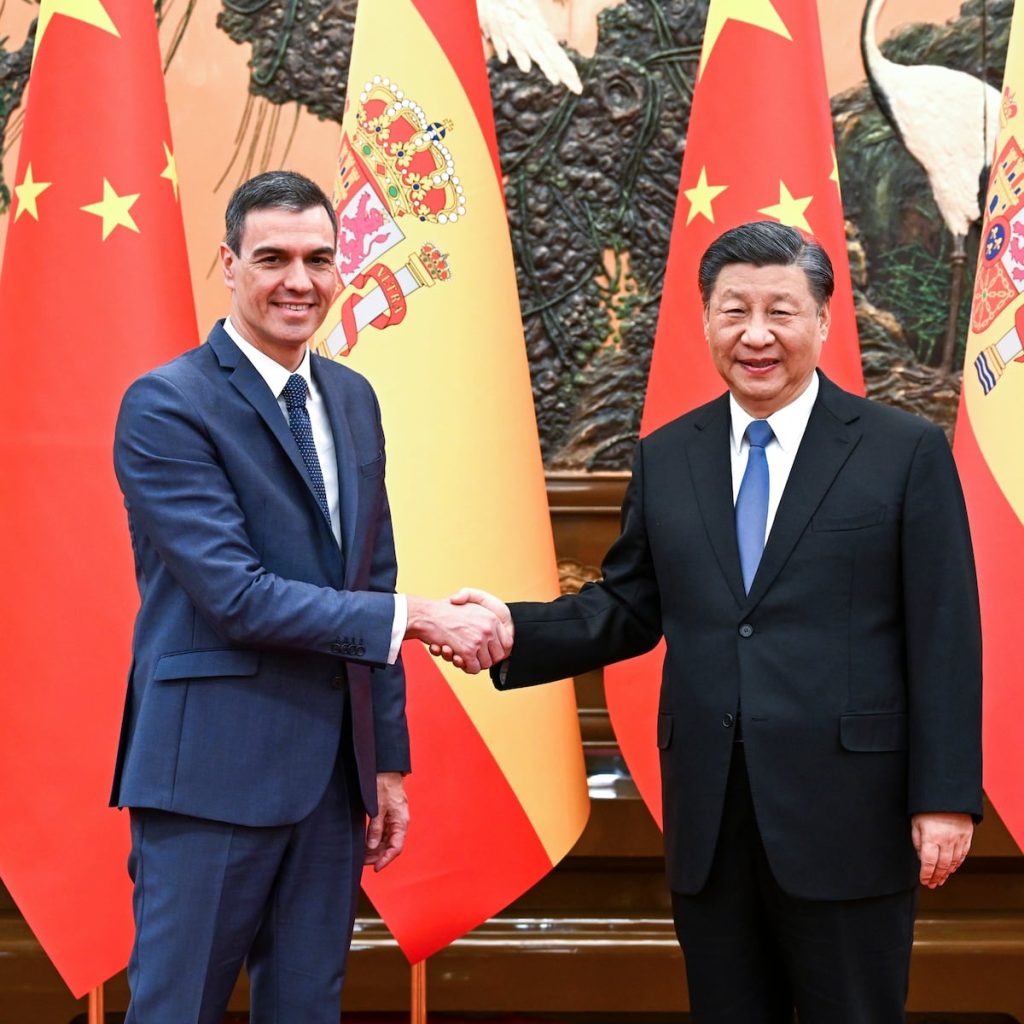In the ongoing battle for political narrative in Spain, the opposition and the government are competing to impose their own. The PP’s main objective is to convince Spaniards that the legislature is unviable, the government is not governing, and could fall at any moment. Pedro Sánchez and his team, on the other hand, insist that “there is a government for the long haul,” that “Spain is in one of the best moments of its history,” and that now that a long period without elections has opened up, everything is returning to normalcy. Sánchez’s international agenda is crucial in this context as he has been traveling around the world as president for six years, presenting a sense of normalcy and reinforcing his political stature on the global stage.
In an unusual move, Sánchez has embarked on his second trip to China in just over a year to meet again with Xi Jinping, addressing a pressing issue concerning Spain. This involves the possibility of China retaliating against EU tariffs on electric cars manufactured in China, potentially targeting the Spanish pork market, which has become a significant export industry for Spain. Sánchez, accompanied by the Foreign Affairs Minister, aims to persuade Xi to avoid these retaliations, which could severely impact the Spanish pork industry that employs thousands of people. The trip also focuses on economic objectives, promoting Spain as a reliable ally for China and enhancing commercial relations, particularly in sectors such as energy, automotive, and green hydrogen.
Spain has become China’s primary destination for Spanish pork, with 560,488 tons of products valued at 1.233 billion euros received in 2023. Sánchez’s four-day visit aligns with his focus on defending Spanish industry interests, not limited to pork but also including other sectors like energy, automotive, electric batteries, and green hydrogen. Accompanied by a group of Spanish entrepreneurs with interests in China, the president will visit Spanish companies operating in China, including established firms like Group Antolín, the Mondragón Group, and Alsa.
During the last trip, Sánchez called on China to open up its market further, addressing the increasing trade deficit with not only Spain but also the entire EU. The asymmetrical relationship between China and Europe poses challenges, with China exporting substantially more to the EU than it imports, accompanied by stringent regulations hindering European product entry. These issues will likely be discussed during Sánchez’s meetings with Chinese authorities. Although Sánchez tends to avoid discussing human rights matters with Chinese leaders, the issue is notably absent in official statements from La Moncloa to maintain diplomatic relations.
As Sánchez focuses on his international agenda, the Cabinet will once again approve the stability pact on Tuesday, previously rejected by the opposition in July. This move signals the government’s determination to pass budgets beneficial for millions of citizens, forcing detractors to face the political consequences of thwarting these initiatives. The contrast of Sánchez’s stable international image, exemplified by two trips to China within a year, juxtaposes the parliamentary challenges in Spain, particularly the tensions with Catalan separatists hindering the government’s agenda.















